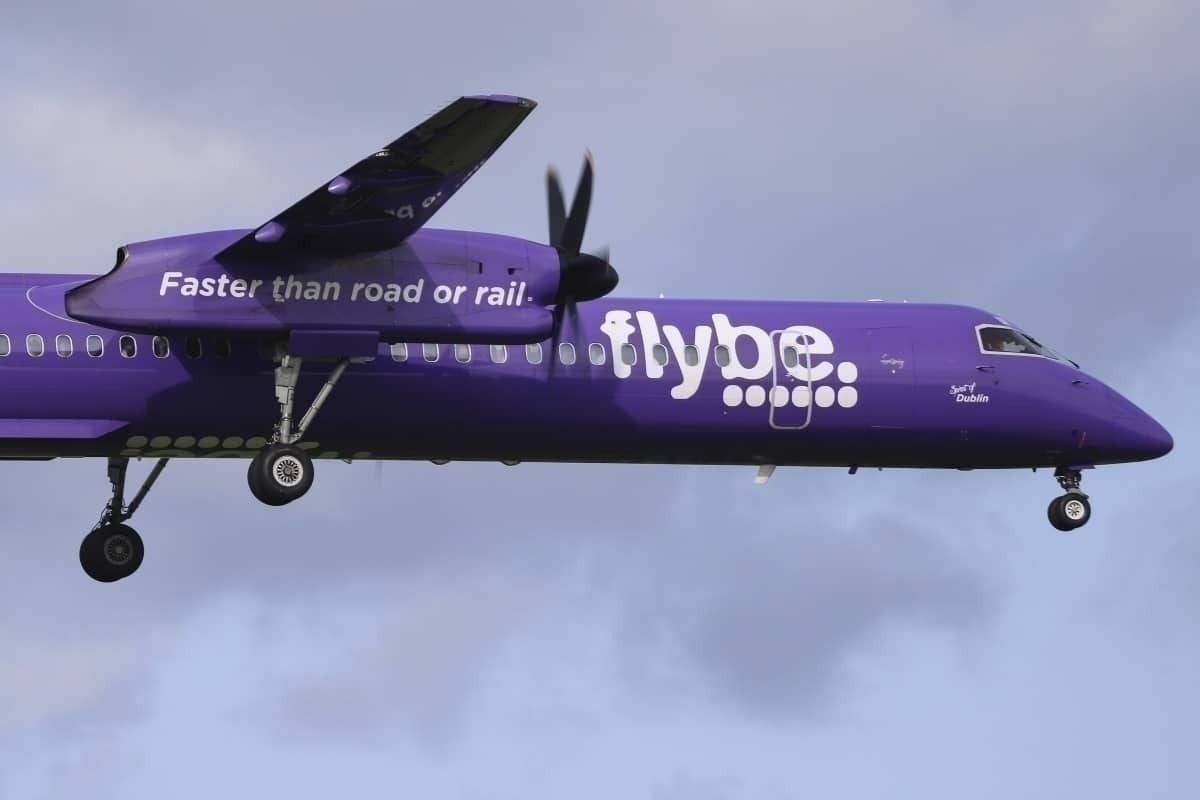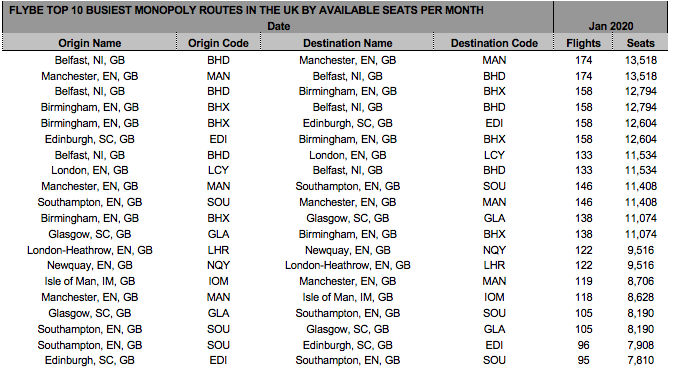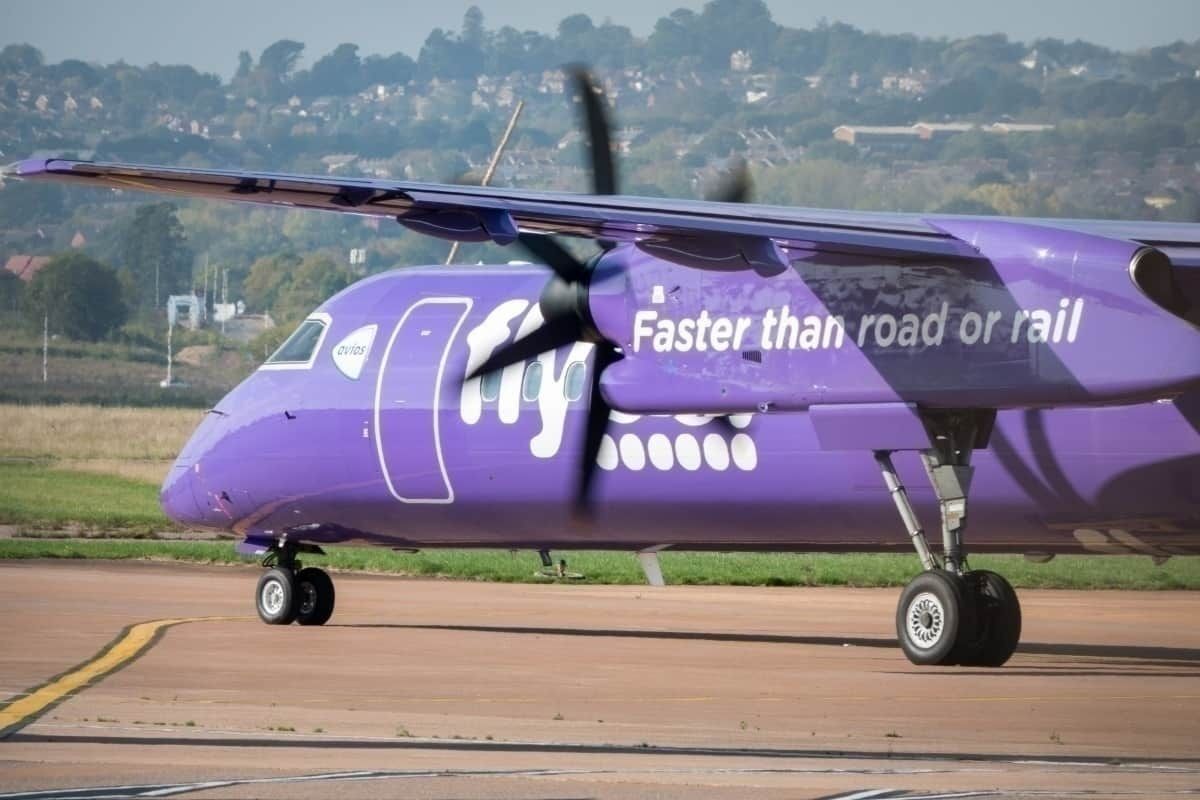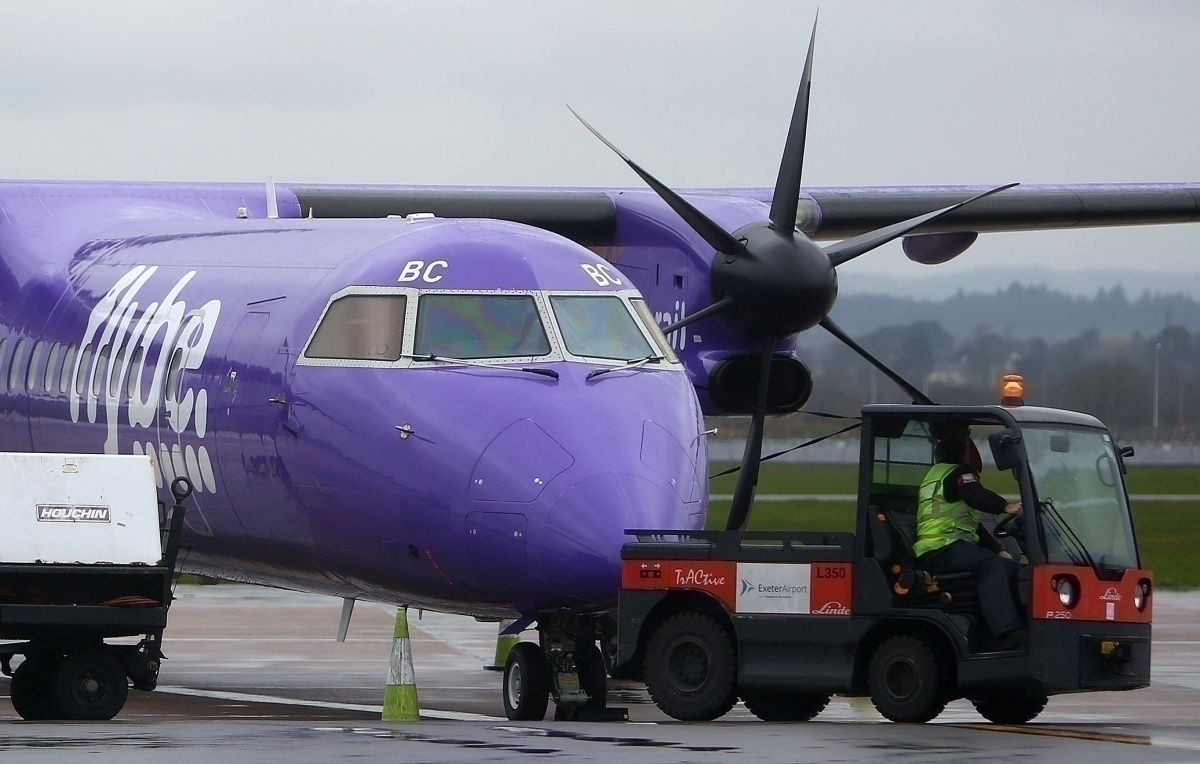After collapsing in March, UK regional airline Flybe could resume flying again as soon as next year after one of the airline's former shareholders stepped in to buy up its assets. Without getting into too many details, Flybe's new owner Thyme Opco said, "it plans to start off smaller than before."
Before its collapse last spring, the Exeter-headquartered airline carried eight million passengers a year and was responsible for 40% of all UK regional flights. During its last year of operations, Flybe was the leading carrier at many of the country's small airports, operating 80% of Belfast, Exeter, and Southampton flights.
Stay informed: Sign up for our daily aviation news digest.
Other airlines took over profitable routes.
When the airline went under, 2,200 employees lost their jobs, many of whom lived in and around Exeter. As far as the airline's routes were concerned, Scottish regional carrier Loganair snapped up the profitable Edinburgh and Glasgow to Southampton, and Newcastle to Exeter routes. However, many of the less profitable routes were not picked up by other carriers, leaving many communities and small airports like Anglesey without an airline.
According to travel data and analytics experts, Cirium, pre the coronavirus outbreak, Flybe was one of the largest operators of short-haul routes within the UK and Europe, operating 2,374 flights a week with 175,260 available seats from 43 different hubs.
Flybe was the third-largest airline in the UK, measured by the volume of flights, after easyJet and British Airways. It represented 11% of all flights operated by UK carriers. When looking at data from Cirium, we can see that 60.7% of Flybe routes were domestic, leaving 39.3% for international flights to and from the UK to France, Holland, Germany, Luxembourg, Switzerland, and the Republic of Ireland.
Cyrus Capital was the biggest shareholder
When Flybe failed on March 5, 40% was owned by global private equity and investment firm Cyrus Capital with the Stobart Group and Virgin Atlantic sharing the remaining 60% equally. Over the preceding winter, leading up to the collapse, plans were to rebrand the airline in 2020 as Virgin Connect and drop routes on which Flybe was losing money. Yet despite injecting £100 million into the airline to keep it afloat, the scale of Flybe's problems was much more significant than anyone realized.
In Flybe's new owner's favor is the fact that unlike Loganair, Eastern Airways, and Aurigny and Blue Islands, who took over Flybe's Channel Islands routes, they have not had to deal with COVID-19.
Flybe plans to start small
While not saying how much was paid for Flybe, the airline's administrators EY did put out a statement carried by The Independent which said,
"While the transaction is still subject to certain confidential conditions, the deal is expected to allow the Flybe business to restart operations as a regional airline in the UK under the Flybe brand in early 2021. Following today's announcement, the Administrators will work together with Thyme Opco, the Flybe management team, and the UK Civil Aviation Authority to prepare for the relaunch of Flybe's airline operations."
The joint administrator, Simon Edel, said,
"Today's announcement, and the upcoming completion of this sale, will be great news to communities around the country that were previously served by Flybe. The restart of this iconic brand, which was once Europe's largest regional airline, will provide a potentially significant boost to aviation jobs, regional connectivity, and local economies."
A spokesperson for Thyme Opco said,
"We are extremely excited about the opportunity to relaunch Flybe. The airline is not only a well-known UK brand, it was also the largest regional air carrier in the EU, so while we plan to start off smaller than before, we expect to create valuable airline industry jobs, restore essential regional connectivity in the UK, and contribute to the recovery of a vital part of the country's economy."
Starting a new airline right now, given the facts on the ground, doesn't sound like a particularly good idea. Airline industry experts predict that the airline industry will not see a return to 2019 levels until at least 2023 and maybe even 2024. While it is nice to see Flybe return and the jobs that will come with it, let's wait and see how small the airline will be and what routes it will fly.
What do you think about the return of Flybe? Please tell us what you think in the comments.




